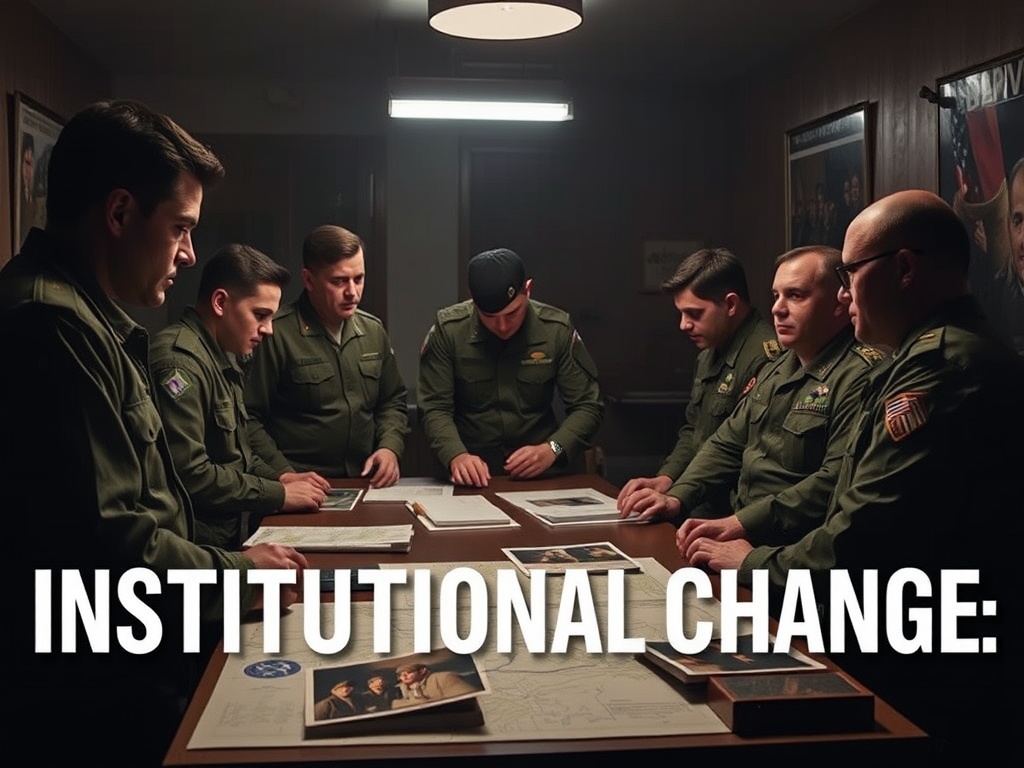Assessing Institutional Change After Tragedy

How can one discern if a deeply flawed institution genuinely seeks to reform itself after a tragedy? Is it through the acknowledgment of past failures, a heartfelt apology to grieving families, or the assurance that toxic cultures are actively being dismantled? If such indicators were definitive signs of real change, perhaps the family of Gunner Jaysley Beck would find solace in the belief that the Army is truly committed to learning from the mistakes it made prior to her tragic suicide in 2021.
However, their apprehension is entirely justified. An inquest held recently revealed that the 19-year-old tragically took her life in 2021 due to a “systemic failure” within the military that potentially violated her “right to life.” Gunner Beck felt powerless to report a campaign of harassment from one of her superiors after the Army neglected to investigate a sexual assault complaint she lodged against another soldier. She had accused 39-year-old Battery Sergeant Michael Webber of pinning her down and attempting to kiss her without consent. Rather than initiate an investigation, Captain James Hook, who coordinated the training exercise during which the alleged assault occurred, speculated that she might have been attempting to “generate a situation” to evade participation.
Subsequently, Beck faced relentless harassment from her line manager, Bombardier Ryan Mason, who inundated her with over 4,600 messages and even crafted a 15-page “love story” detailing his inappropriate fantasies about her.
In response to the coroner’s findings, the Army acknowledged that “we should have done so much more to support and protect her.” Their official statement asserted that significant changes had been implemented since Gunner Beck’s death, including the introduction of clear policies mandating zero tolerance for unacceptable behavior. Yet, they conceded that further efforts are necessary to ensure that soldiers feel secure when reporting sexual offenses.
Nevertheless, Gunner Beck’s family remains unconvinced, and their skepticism is warranted. Her mother stated that the Army should “not be allowed to investigate itself any more regarding cases of sexual harassment, bullying, and abuse.” Her sister accused the Army of having “blood on its hands” for dismissing her complaint, adding that it “needed to be handled by the police. That could have ultimately kept Jaysley with us today.”
The family is advocating for an independent body to investigate allegations within the Army. This issue is not isolated to the military; many institutions have long maintained that they can manage their own problems, often citing their unique status as justification for keeping issues internal. The Church of England, too, has had to confront its inability to address safeguarding matters on its own after repeatedly mishandling child sexual abuse scandals. Like the Army, it had deluded itself into believing it was superior to broader society, convinced that all necessary wisdom for handling complaints resided within its ranks.
This insular belief system is particularly advantageous for abusers, allowing them to exploit a common flaw in human nature: the difficulty in believing allegations made against individuals we know and respect professionally. This inclination is entirely natural. Additionally, it is a deeply human instinct to want to conceal even minor mistakes, opting instead to present an image of control and competence rather than acknowledging our limitations and imperfections.
However, the more significant the error, the greater the temptation to deny it, not just to avoid repercussions but also to maintain one’s self-image and absolve oneself of accountability. This pattern is prevalent in healthcare, where professionals often grapple with separating themselves from the devastating outcomes of their errors, striving to reconcile their actions with their sense of self-worth, while simultaneously needing to acknowledge their responsibilities. Without a system in place that effectively counters human nature’s tendency to conceal, cover-ups will inevitably occur.
Moreover, the evidence presented during Jaysley’s inquest, along with testimonies from over 1,000 women via the anonymous military social media platform “Fill Your Boots,” indicates a persistent culture of misogyny within the Armed Forces. The language used in these testimonies suggests that this issue is not confined to the past; it remains an ongoing concern within the military.
It was not merely that fellow soldiers found it challenging to believe that one of their own had allegedly assaulted Gunner Beck. It also seemed that they did not value her testimony enough to investigate, or worse, that they believed women should tolerate unacceptable or even criminal behavior as a necessary condition of military service.
The true measure of an institution’s commitment to change lies not in the catalog of measures it presents as evidence of reform, nor in the past-tense admission of having “got things wrong.” It resides in the acknowledgment that failures may continue to occur in the future. Confronting this reality is a painful but essential step for any institution. Recognizing this possibility is the only genuine path to meaningful change.
Isabel Hardman is the assistant editor of ‘The Spectator’ magazine.




